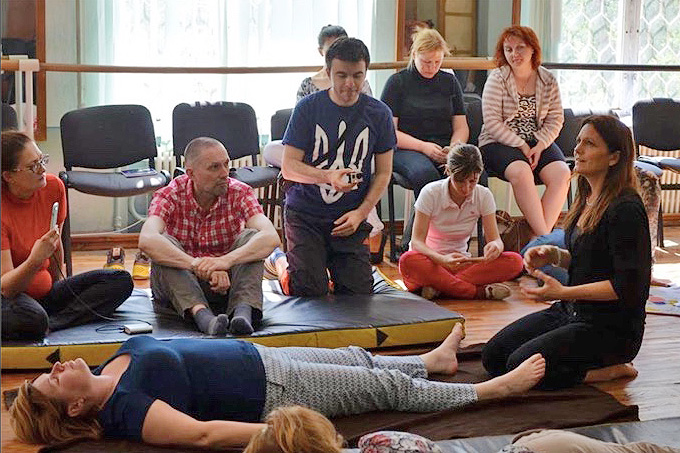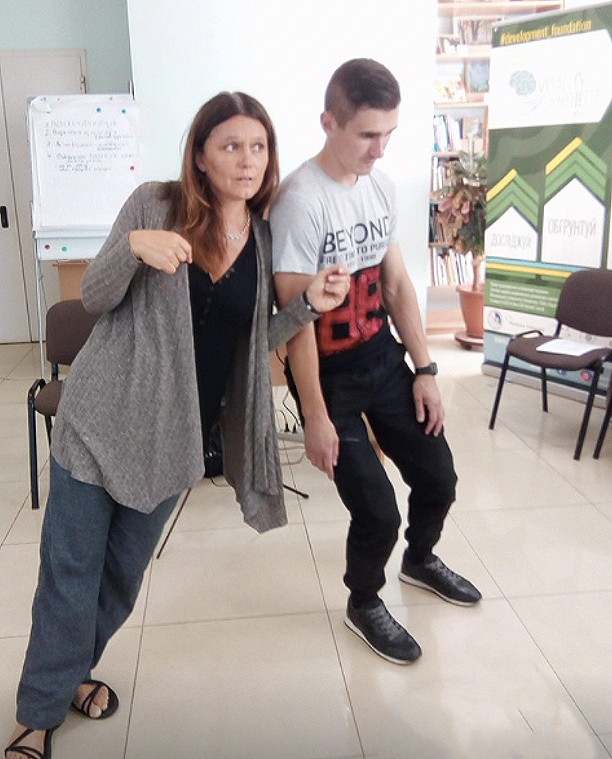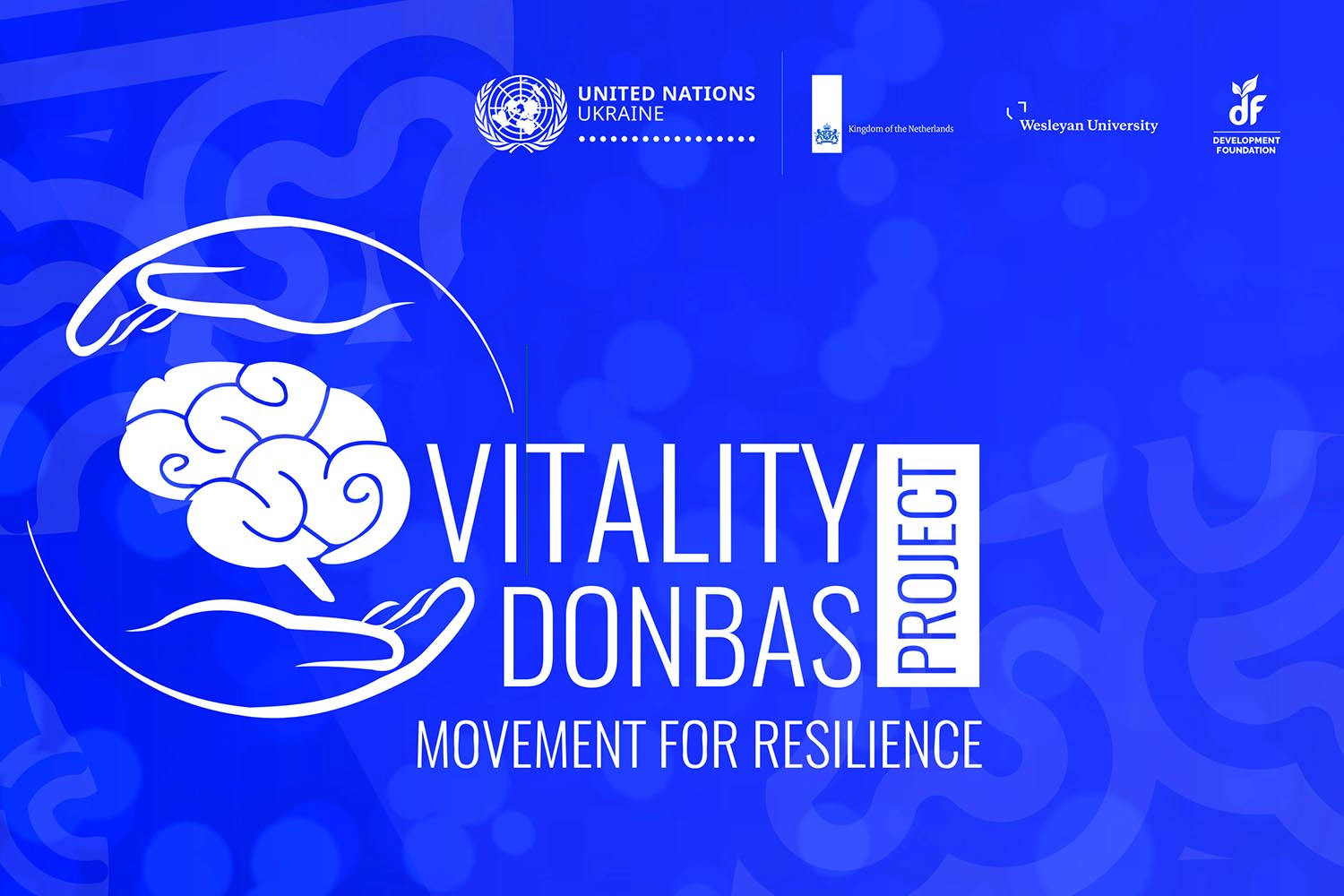Kolcio Receives Grant from the United Nations Recovery and Peacebuilding Programme


Katja Kolcio, director of the Allbritton Center, associate professor of dance, received a $64,745 grant from the United Nations Recovery and Peacebuilding Programme (UN RPP) this month to evaluate the impact of somatic methods on psycho-social wellness in the context of the armed conflict in Donbas, Ukraine.
“Somatic methods, which are the basis of this project, are movement-based methods that hone body-mind connection in the interest of promoting self-awareness and wellness,” Kolcio explained.
The Vitality Donobas Project is a collaboration between Kolcio and the Development Foundation (DF), an NGO dedicated to psycho-social relief, formed in Ukraine during the Maidan Revolution. In the course of six months, this project will directly engage over 1,500 participants in Donbas through a combination of virtual online and safe in-person programming.

The project is unique in three respects, Kolcio said. First, the somatic program being implemented is context-specific. It was developed by Kolcio in collaboration with her Ukrainian partners over the course of five years of working directly in Ukraine. Second, the somatic approach is holistic, meaning individual and social (family and community) health are conceived as integrally connected and concurrently addressed. Finally, the work will be evaluated for its impact as relating to both the individual and social sphere.
“This approach, which connects individual wellness to the broader social world, is intended to draw attention to the role that collective and intergenerational trauma can have on individual health and, in turn, on civic vitality and engagement,” she said.
The project team will work with Wesleyan’s Quantitative Analysis Center (QAC), with the advisement of director Jennifer Rose, and will enlist the help of research assistants from the QAC and Dance Department. This grant will make it possible to disseminate and systematically evaluate the effects of somatic methods over time in a context of political unrest, violent conflict, and a global pandemic.
This project is a culmination of work that Kolcio and NGO Development Foundation founders Marta Pyvovarenko and Vitali Kharechko have developed over the past five years working with relief workers, internally displaced persons, veterans, and soldiers across Ukraine. Their programs in somatic methods have already been implemented in Kyiv, Lviv, Zaporizhya, Lutsk, and Dnipro, and in collaboration with Zaporizhzhia National University, Lesya Ukrainka Eastern European National University, G.S. Kostiuk Institute of Psychology of the National Academy of Pedagogical Sciences of Ukraine, and the National Guard of Ukraine.
Kolcio’s programs in partnership with the DF have previously received financial support from humanitarian organizations in Ukraine and abroad, including N-DSA-N (Italy), Ukrainian-American Relief Committee (USA), the Development Foundation for Health Cluster and Protection Cluster (Ukraine), and the World Health Organization Office (Ukraine). In addition, Kolcio commends the Tragedy Assistance Program For Survivors (USA), Wounded Warriors Project, and Blind Veterans (USA) for being “tremendously helpful in advising us and sharing materials,” she said.
In March 2020, Kolcio and Pyvovarenko presented their findings to the U.S. Congressional Ukrainian Caucus and Senate Ukraine Caucus in the Capitol Building in Washington, D.C. Their current project is endorsed by the recently formed Ministry of Veteran Affairs in Ukraine.
As a dance artist and somatic educator, Kolcio, who has a PhD in somatics from Ohio State University, has studied the relationship between movement and social change for 25 years through her teaching, choreography, and art activism. The Ukrainian Maidan Revolution of Dignity of 2013–14, which drew millions of people across political, ethnic, and religious lines, inspired her deep dive into this research in Ukraine.


